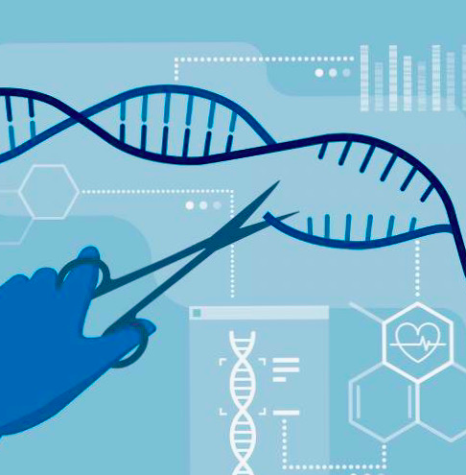Course Highlight: Introduction to Human Subjects Research
Introduction to Human Subjects Research I/II (BIO 4930 and BIO 4932) are a sequence of courses unfamiliar to many students. The first semester course is four credits, with lectures on campus once a week. The second semester course is two credits and fulfills an upper-level laboratory requirement for biology majors. Lectures in the winter course are held bi-weekly at Henry Ford Hospital in Detroit.
During lectures, students learn of all aspects of clinical research. This includes ethics, data collection, research methods, designs and how to perform literature searches. Last year, several guest speakers — many Emergency Medicine physicians — gave presentations concerning their own research endeavors.
Beyond didactics in the classroom, however, this course has another requirement: weekly clinical shifts at Henry Ford Hospital in Detroit. Students working in pairs assist with several research projects, working directly in the Emergency Room alongside physicians, nurses, research assistants and several other healthcare professionals. Students also interact with hospitalized patients during each shift.
Christina Thomas, a senior Biology major on the Pre-Med track, completed this series of courses during the last academic year. She considers this participation as monumental in her journey to becoming a physician.
“I could not have asked for a more fulfilling experience. It was so much more than just a course for me,” Thomas said. “The clinical shifts allowed me to directly experience what it is like in a busy emergency department, while also gaining a deeper understanding of how research is conducted with patients.”
Thomas had a difficult time deciding what her most memorable moments were — however, she settled on her exchanges with patients and with other volunteer research assistants employed by Henry Ford.
“Each shift spent working in Henry Ford’s ED was a completely unique experience and every patient was eternally grateful for our help, even if it meant simply bringing them a sandwich and a blanket,” she said. “I will never forget those people and the lessons learned working alongside the residents, PA’s and nurses in the Detroit community.”
These courses are spearheaded by Henry Ford Emergency Medicine Physicians Dr. Howard Klausner and Dr. Matthew Ball. Klausner serves as the Principal Investigator of several research studies, a few of which are highlighted in the curriculum and are part of students’ duties as research associates in the emergency department. Examples include studies regarding sickle cell anemia, acute pancreatitis and hyperkalemia.
For pre-health professional students wishing to gain relevant knowledge in a traditional classroom setting — as well as hands-on experience in a busy clinical setting — these courses are a great fit. Further, this type of exposure can help students solidify their choice in pursuing a career in medicine. It can also open the door for shadowing and future employment opportunities within Henry Ford Health System.
BIO 4930 will be offered during Fall 2022, with BIO 4932 to follow in Winter 2023. For anyone with questions regarding the courses, feel free to contact Thomas at [email protected].







